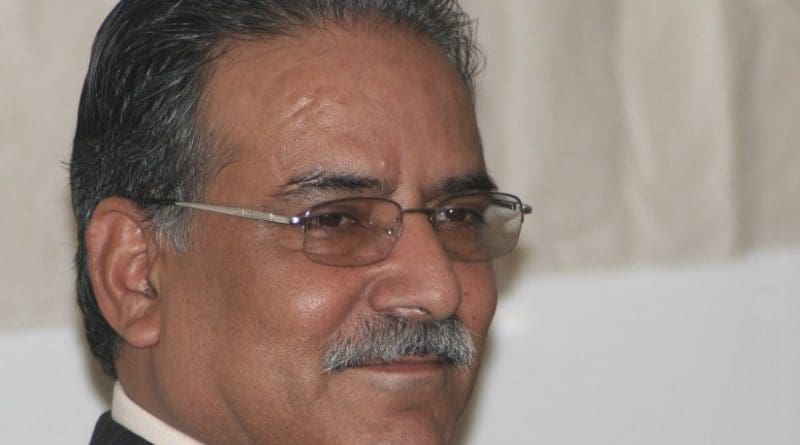Nepal: Dahal 2.0: Will He Do Better This Time? – Analysis
By SAAG
By Dr. S.Chandrasekharan
Maoist Chief Dahal took over as the 39th Prime Minister of Nepal on 3rd August.
Dahal’s first stint as Prime Minister was a disappointing one. He showed little statesmanship and was seen more as a leader of a party than as a leader of the nation.
There is hope that he would do better this time after learning from his past mistakes. As one of the analysts said, this is probably Dahal’s last opportunity to redefine his leadership and lead Nepal to prosperity.
Dahal as per his agreement with the Nepali Congress has less than eleven months to achieve all that he had promised. In our last update I had outlined various challenges like the Madhesi question, ending of the peace process, reconstruction and rehabilitation work etc. that Dahal will be facing after taking over as the Prime Minister.
What I missed and what appears to be the most serious challenge is the management of his own coalition partner- here the Nepali Congress.
It took 23 days for the Nepali Congress to come up with a list of nominations for the ministers from the party. To say the least it was most shameful and one wonders how they are going to function once Dahal hands over Prime Ministership later.
It took intense lobbying and discussions amongst the various factions of the Nepali Congress to come up with an agreeable list and in the end they had to request for a few more seats to accommodate all the factions.
It was thought that the Nepali Congress had only two factions- one of Sher Bahadur Deuba and another of Paudel to contend with. It is now learnt that there were four factions and there could be more. Besides the two mentioned there are factions of K.P. Sitaula and another of Khum Bahadur Khadka. After all these negotiations some of the senior leaders were still not satisfied- like Dr. Shekhar Koirala who not only wanted a senior ministerial berth but a particular portfolio!
The only good point that has emerged is that at last- the senior Nepali Congress leadership has grudgingly given a berth to the youth leader Gagan Thapa but that too as part of a deal with the Sitaula faction!
On the Madhesi Question, some progress has been made in declaring those killed as martyrs and in the payment of compensation. Formation of a probe panel and withdrawal of false cases against many of the Rioters as per the three point agreement are yet to be implemented but the process is on.
A new task force comprising of representatives of the Maoist Centre, the Nepali Congress and the agitating Madhesi and Janajathi parties is being formed to start fresh negotiations.
The Madhesi leadership is surprisingly very keen in fact desperate to join the new government. They are looking for an excuse and perhaps waiting for the government to move for a constitutional amendment!
A test of the new leadership and its coalition will soon come in deciding on the local body elections. Both the Nepali Congress and the Madhesi groups are not satisfied with the number of 565 decided by the LBRC (Local Bodies Restructuring Commission). Any change proposed would only further delay the elections that were long overdue.
But the real problem that will be faced by the Dahal government is that promise of constitutional amendments for delimitation of the boundaries. The ruling alliance does not have the required two thirds majority to get any constitutional amendment through. Any assurance that it will be done before Dahal’s visit to Delhi in September has been rightly termed as “pure chicanery” that will fool no one.
Dahal’s initiative in sending his very close Confidante Mahara to China and Nidhi who has no political clout in India or in Nepal to India – with the aim of restoring ties with India and continuing what was achieved with China during his predecessor’s tenure will have to be viewed with a little caution.
Dahal’s past statements and actions may not give confidence to Indian policy makers. I would say that for the new Avatar of Dahal- the Indian policy could be in the now familiar saying “Trust but Verify.”

